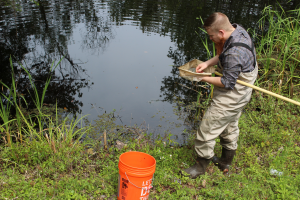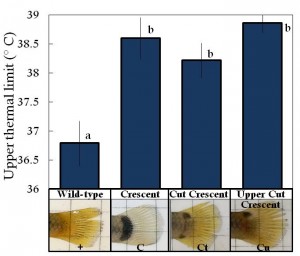Research Interests
Research in the lab seeks to better understand the origin and maintenance of biodiversity with an emphasis on evolutionary consequences of environmental variation. To address this question we rely on research questions and studies that integrate ecology, behavior, physiology, and genetics to understand how organisms respond to their environment. We combine field and laboratory studies and attempt to determine whether the same sources of selection that drive microevolution also explain macroevolutionary patterns. Although all of our research ultimately connects fundamental questions in about evolution and biological diversification, the following sections highlight interests and past research within specific disciplines.

Behavior
Animal behavior plays a critical role in evolution from shaping phenotypic diversification to establishing reproductive boundaries that promote the formation of new species. Our research questions related to behavior tend to center on determining the relative influence of behavioral variation on basic evolutionary processes. For example, is sexual selection or natural selection more important for species formation? However, recent and ongoing work is looking at how behavior evolves across important environmental gradients and how this contributes to biological diversification.

Ecology
Work on ecology in the lab involves quantifying environmental variation during field collections, as well as using global datasets of biotic and abiotic variables to understand the conditions to which different populations and species have adapted. The central goal is to understand what variables have shaped diversification. Much of our work has demonstrated a consistent effect of temperature across biological scales, and we continue to pursue a better understanding of the mechanisms that enable species to cope with their thermal environment.

Physiology
Research on physiology focuses on how organisms cope with their environment. Much of our work has centered on thermal physiology related to how species adapt to thermal conditions within their range, but we are also interested in other aspects of physiological adaptation with particular emphasis on environmental stressors.